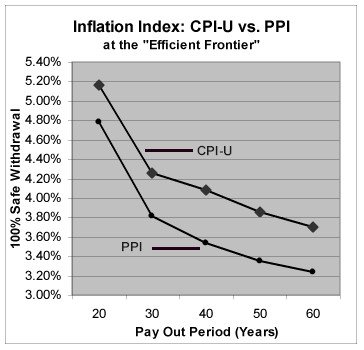chinaco
Give me a museum and I'll fill it. (Picasso) Give me a forum ...
- Joined
- Feb 14, 2007
- Messages
- 5,072
Its been at least a week since anyone has had a chance to annuity bash. Just thought I would share this article. It does provide some interesting thoughts... although contrary to the thinking of many people on this board.
It is from the Wharton School of Business (and NY Life) about using annuities in retirement to achieve.
http://fic.wharton.upenn.edu/fic/papers/06/0614.pdf
Key findings revealed in the study also include:
It is from the Wharton School of Business (and NY Life) about using annuities in retirement to achieve.
http://fic.wharton.upenn.edu/fic/papers/06/0614.pdf
Key findings revealed in the study also include:
- Immediate annuities offer the advantage of risk-pooling. The Wharton study found that because insurers can share the risk of outliving one’s savings across a large group of policyholders, income annuities can offer financial security throughout retirement using 25 to 40 percent less money than would be required to provide an equivalent level of financial security through a retirement portfolio that does not incorporate income annuities – a benefit no other financial product can provide.
- No other asset class can address the risk of outliving one’s nest egg without requiring much more money. Current mortality tables show that an average healthy American male at age 65 today can expect to reach approximately age 85 – but that same individual also has a 50 percent chance of living beyond age 85 and 25 percent chance of living beyond age 92. As a result, people who plan to cover their economic needs to their “life expectancy” – in this case, age 85 – still face a 50 percent chance of failure. The Wharton study explains that only lifetime income annuities can mitigate the financial risk of living too long by relieving consumers of the need to set aside the far greater sums they would otherwise need to allocate to other asset classes to ensure they would not outlive their retirement savings.
- Equities, fixed income and other investment products are not substitutes for income annuities. Professor Babbel and Professor Merrill demonstrate that, unlike income annuities, other asset classes fail to address the risk of living too long. In addition, the study shows that consumers who place their retirement wealth in investment products like mutual funds are subjected to greater risk, typically higher expenses, and returns that are unlikely to keep pace with annuity returns, when investment risk is taken into account.
- Covering basic living expenses with income annuities can enable significantly greater flexibility in other areas of a retirement plan. According to the study, if basic expenses are covered by income annuity payments, individuals can keep their discretionary funds invested in equities for a longer period of time, providing the benefits of historically higher returns. This approach can also enable retirees to delay taking Social Security benefits until they are fully vested, providing substantially higher payments.
- Several insurers have added consumer-friendly innovations to the income annuity product platform, virtually eliminating the traditional reasons for not purchasing. According to the professors, features such as annual inflation adjustments, access to capital in emergencies, legacy benefits, interest rate protection, and the ability to increase or decrease payments at a future date make historical reasons for not purchasing income annuities no longer valid.


 So many equally unsettling things have happened in the past 50 years.
So many equally unsettling things have happened in the past 50 years.